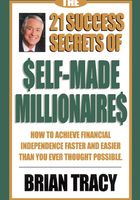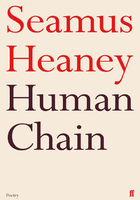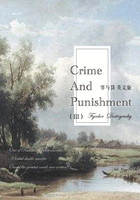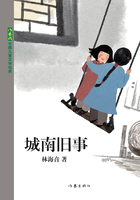The Three Musketeers
I asked him about his enemies. He began to count them. The list went on and on….
—Conversations with Yahya Kemal
Thirty-two years before he died, he wrote a column about his funeral that reflected his worst fears, and his fears, it turned out, were well founded. Not counting myself and the corpse in the coffin, there were nine of us in attendance: an orderly from a small private addiction clinic in Usküdar, an inmate from the same establishment, a retired journalist who'd been his protégé when our columnist's star was at its apex, two cross-eyed relatives who knew nothing about the deceased's life or career, an overdressed dowager with a strange veil pinned to her hat that made her look like the sultan's chief interrogator, and our honorable imam. Because the moment of interment coincided with the worst moments of yesterday's storm, the imam raced through the prayers, throwing the earth onto the coffin with what some might call unseemly haste. The moment it was over—and I cannot quite explain how—our small crowd vanished into the mist. I was the only one at K?s?kl? awaiting the next streetcar. I took a motor launch across the Bosphorus; reaching the European shore, I headed straight for Beyo?lu, where Edward G. Robinson's Scarlet Street was playing at the Alhambra; I went in and sat down and nearly fainted from joy. The hero, an unsuccessful businessman with a second and just as unsuccessful life as an amateur artist, decides to impersonate a millionaire, hoping to impress the woman he loves. But little does he know that Joan Bennett, the object of his affections, is also playing a double game. We all watched in despair as he discovered her deception, nursed his broken heart, and succumbed to grief.
When I first met with the deceased (let me begin this second paragraph as I did the first, borrowing the words he recited so often and so lovingly in his columns), when I first met with the deceased, he was in his seventies and I in my thirties. I was on my way to Bak?rk?y to visit an acquaintance, and I was about to board the suburban line at Sirkeci when what did I suddenly see? The great columnist himself, at a table in the restaurant at the edge of a platform, drinking rak? with two other columnists I'd read and admired throughout my childhood and early youth. What shocked me was not to see these three old men—who were all over seventy and longtime residents of my literary Mount Kaf—amid the deadly, noisy crowds of Sirkeci station, but to see these three polemicists, who had been insulting each other in print since the start of their writerly careers, still sitting together at a table twenty years on, clinking their glasses like the three musketeers at Dumas père's tavern. In the half century since they had taken up the pen, they had witnessed the waxing and waning of three sultans, one caliph, and three presidents, but still these three polemicists had battled on, sometimes leveling accusations with good reason, but usually seizing any opportunity to accuse one another of being atheists, Young Turks, Europeanists, nationalists, Masons, Kemalists, republicans, traitors, tinpot sultans, Westernizers, dervishes, plagiarists, Nazis, Jews, Arabs, Armenians, homosexuals, turncoats, Islamist fanatics, Communists, pro-Americans, and even—this being the epithet of the moment—existentialists. (At around that time, one of them had written a column pointing out that the greatest existentialist of all time was Ibn' Arabi, and that the Western existentialists who came onto the scene a full seven hundred years later were mere imitations who had plundered his every idea.) After I had stood there watching the three polemicists for some time, I was seized by an urge to approach their table and introduce myself; I did so carefully, making it clear that I admired them all equally.
Let me make it clear, dear readers: I was an overexcited youth, a bright, imaginative, passionate, and successful young man, but also somewhat volatile, wavering as I did between conceit and self-confidence, sincerity and cunning. I was new to the scene in those days—new enough to smell the flowers, as they say—and if I hadn't known that I already had a larger readership than they did, and received more readers' letters (and, of course, wrote better columns)—if I hadn't also known that two of them at the very least were painfully aware of all this, I doubt I would have found the courage to approach these three masters of the profession.
This was why, when they turned up their noses at me, I took it as a sign of victory. Because, of course, if I'd been an ordinary reader hanging on to their every word and not a young and successful columnist, they would have treated me far better. It was some time before they invited me to sit down with them; no sooner had they done so than they sent me to the kitchen like a waiter; then they sent me to the newsstand to buy them a weekly magazine they wanted to see; I peeled an orange for one of them; when one of the others' napkin fell to the ground, I swooped down to rescue it for him before he had a chance to do so himself; and I answered their questions in just the hesitant, self-effacing way they wanted: Yes, sir, it's a terrible shame I can't read French, but every evening I pick up a dictionary to unravel Les fleurs du mal. My professions of ignorance made my victory even harder for them to bear, though my constant hemming and hawing helped to mitigate my crime.
They acted as if I were of no interest to them whatsoever, but when they turned their backs on me to chat among themselves (much as I myself would do years later in the company of younger journalists) it was only too clear to me that these three masters were trying to impress me. I listened in admiring silence. What was the true nature of the forces that had compelled a German atomic scientist then causing a stir in all the newspapers to convert to Islam? Was it true that Ahmet Mithat Efendi, Turkey's greatest columnist, had, after Lastik Sait Bey got the better of him in a war of words, pushed his rival into a dark alley, beaten him to a pulp, and made him promise to abandon the war of words forever? Was Bergson a mystic, or was he a materialist? How could one prove that there was a second universe hidden inside the secret core of our own? Which poets had been criticized in the last lines of the twenty-sixth sura of the Koran for professing beliefs they did not hold and deeds they had never performed? While they were on the subject, was André Gide really a homosexual, or had he decided, like the Arab poet Ebu Novvas, to act as if he prefered boys to women, because he'd known it would get him attention. Had Jules Verne based his erroneous description of Mahmut II and Tophane Square in the opening paragraph of Kéraban-le-têtu on a Melling engraving or had he lifted it in its entirety from Lamartine's Voyage en orient? Had Rumi the great mystic poet included the woman who died while making love to a donkey in the fifth book of his Mathnawi for the story or the lesson that could be drawn from it?
It was while they were politely dissecting this last question that their eyes glided in my direction, and because they had also indicated with their white eyebrows that they were asking me the question, I added my thoughts to the discussion: The story, like all stories, stood only for itself, though Rumi had also seen fit to drape it in the veil that conveyed its lesson. Then the man whose funeral I attended yesterday turned to me and asked, "My son, do you write those columns of yours to instruct or to entertain?" To prove I could speak with authority on any subject, I gave him the first answer that came into my head. "Oh, certainly to entertain, sir." This did not please them. "You're young. You're just at the beginning of your career," they said. "Allow us to give you a few words of advice!" "Would you mind," I replied, "if I committed your advice to paper?" I raced over to the cashier in the corner, where the restaurant owner gave me a few sheets of restaurant stationery. I stacked them facedown on the table, took out my enamel fountain pen, and, as my mentors held forth, I took notes in green ink, and now, dear reader, I would like to pass their wise words on to you.
I am aware that some of my readers will be impatient to know the names of these masters, all three of them long forgotten; they will have been hoping that, having managed to conceal the names of my three polemicists thus far, I might, at the very least, whisper their names into their ears now, but I am not going to do that. This is not to leave them to sleep in peace in the cemeteries that are now their homes, but to separate those readers who deserve to know from those who do not. With this aim in mind, I shall assign to each dead columnist the pseudonym by which a different Ottoman sultan signed his poems. If those able to identify these poet sultans can also find parallels with the great masters I propose to veil with their names, they will have all they need to solve the puzzle, though I hasten to add that I do not give it much significance. The real enigma resides in this "chess game" my mentors played with me, deepening the secret with each new move and each new piece of so-called advice. Because I am still unable to grasp the beauty of this secret—and in this I am like the luckless dolt who scours chess columns in the vain hope that he might learn from the game's greatest minds—I have interspersed my masters' enigmatic words with parenthetical comments in which I offer my own humble interpretations of the text along with any piteous theories I may have drawn from it.
A: Adli. On that winter's day he was wearing a cream-colored suit made from English material (I say that because in this country we seem to call all expensive materials English) and a dark tie. He was tall and well groomed with a combed white mustache. He carried a cane. He had the look of a penniless English gentleman, though it's not for me to explain how anyone can be a gentleman when he doesn't have a penny to his name.
B: Bahti. His tie is loose and crooked like his face. His jacket is crumpled and covered with stains. In his vest pocket, connected to a chain you can see looped through the buttonhole, is a watch. He's fat and slovenly. In his hand is the cigarette he so lovingly calls his "only friend"—it will go on to betray the one-sided friendship by giving him the heart attack that will eventually kill him.
C: Cemali. He is short and irascible. Try as he might to look clean and tidy, he still looks like a retired schoolteacher, in jackets and trousers as faded as a postman's and thick rubber-soled shoes courtesy of Sümerbank National Factories. Thick glasses, severely myopic, and virulently ugly.
Here, then, is the mysterious advice my masters gave me that day, along with my own lowly efforts to crack the code.
C: To write a column purely for entertainment is to drift without a compass in the open sea.
B: That said, no columnist can be Aesop or Rumi. The lesson always rises out of the story, not the other way around.
C: Never write to the reader's level but to your own.
A: The story is the compass. (An affectionate allusion to 1.)
C: Those who have not cracked the secret locked inside our history and our cemeteries cannot presume to speak about us, or indeed about the West.
B: The key to the East–West question is hidden inside these words attributed to Arif the Bearded: "Oh, you luckless creatures, staring at the West from a ship heading eastwards!" (Arif the Bearded—a character B created for his columns—is said to be based on a real person.)
A,B,C: Start collecting proverbs, sayings, anecdotes, jokes, aphorisms, lines of poetry, and poetry anthologies.
C: Don't wait until you've chosen your subject to hunt down the aphorism that best illustrates it; choose the aphorism first and then the subject that suits it.
A: Never sit down at your desk until you have your first line.
C: You must believe strongly in something.
A: If you don't believe strongly in anything, try to make your readers believe you do.
B: The reader is a child who wants to go to the fair.
C: The reader never forgives the writer who takes Muhammed's name in vain, and God will paralyze him too. (This alludes to a column in which A explored Muhammed's conjugal and business affairs. Perhaps because he has decided that A was referring to him in 11, C has retaliated by referring here to the slight paralysis affecting one side of A's mouth.)
A: Love all dwarfs, for the reader does too. (Here A is getting even with C for 13 by making a veiled remark about how short C is.)
B: That mysterious home for dwarfs in Usküdar, for example; that's a good subject.
C: Wrestling is another good subject, though only when it's done, or described, for the sport. (This is C getting back at B for 15, which he suspects is at his expense: B's strong interest in wrestling, and the serial he writes on the same subject, have led some to wonder if he's a pederast.)
A: The reader is a married man with four children and the mentality of a twelve-year-old who has to struggle to make ends meet.
C: The reader is as ungrateful as a cat.
B: Cats are intelligent animals and not ungrateful; it's just that they know they can't trust any writer who loves dogs.
A: Forget cats and dogs and stick to national affairs.
B: Make it your business to know the addresses of all the consulates. (This refers to rumors about the links C maintained with the German consulate and A with the British consulate during World War Two.)
B: By all means be polemical, but only if you know how to cause injury.
A: By all means, be polemical, but only if your editor takes your side.
C: By all means be polemical, but make sure to take your coat. (This is in reference to a famous remark B made when asked to explain why he did not take part in the War of Independence, choosing to remain instead in occupied Istanbul: "I can't bear the winters in Ankara!")
B: Always answer readers' letters in your column; if no one's writing to you, write letters to yourself and answer those.
C: Our teacher and master is Sheherazade; take a leaf from her book. Whenever writing about about "real life" you too can intersperse facts with stories ten to fifteen pages long.
B: Read sparingly but ardently. That way you'll look far more knowledgeable than those who read a great deal but enjoy nothing.
B: Put yourself forward; cultivate famous people so that you can write up your reminiscences after they die.
A: Don't use the words dearly departed at the beginning of an obituary in which you end up insulting the deceased.
A,B,C: Do whatever you can to avoid using the following sentences: (a) The dearly departed was alive only yesterday. (b) Ours is a cruel profession; what we write today will be forgotten tomorrow. (c) Did you happen to hear such-and-such a program on the radio last night? (d) How time flies! (e) If the dearly departed were alive today, what would he make of this sad state of affairs? (f ) They don't do things like this in Europe. (g) The price of bread (or whatever) was only x kurus in those days. (h) Then, when it was all over, I also remembered such-and-such.
C: Then is a word favored by apprentice columnists who have yet to master their art.
B: If there's anything artful in a column, it shouldn't be there; whatever else a column is, it isn't art.
C: Never flatter the intelligence of anyone who rapes poetry to satisfy his lust for art. (A barbed comment directed at B's poetry.)
B: Write with ease, you'll be easier to read.
C: Write in agony, you'll be easier to read.
B: Write in agony and you'll get ulcers.
A: If you get ulcers, you're an artist. (This being the first time any of them had said anything nice to anyone else, they all burst out laughing.)
B: And at the same time, you become an old man overnight.
C: True, but then you can put your sunset memories in writing! (This provoked another round of affectionate grins.)
A: The three great themes, of course, are death, love, and music.
C: But you've got to make up your mind about love; you must know what it is.
B: Search for love. (Let me remind my readers that between all these nuggets of wisdom were long sulks, silences, and moments of stillness.)
C: Conceal love—after all, you're a writer!
B: Love is a quest.
C: Conceal love, so that you look like you have a secret.
A: If you look like you have a secret, women will fall in love with you.
A: All women are mirrors. (Because they opened up a new bottle of rak? at this point, they offered me a glass.)
B: Remember us always. ("I'll remember you, sir, I'll remember you all, of course!" That's what I told them and, as my readers will already know, I did indeed go on to write quite a few columns about them and relate many of their stories.)
A: Go out into the street and look at people's faces—there's another subject for you.
C: Sense the secrets of history, even though—alas!—you'll never be able to write about them. (At this point C told us a story; the story, which I shall tell in another column, was about a man who uttered the words "I am yours" to his beloved, and it was at this moment that I first sensed the secret that brought these three writers, who had been insulting each other in print for half a century, to sit down at the same table.)
A: Never forget, either, that the world is against us.
B: This country loves its generals, its children, and its mothers, and so must you.
A: Never use epigraphs—they kill the mystery in the work!
B: If that's how it has to die, go ahead and kill it; then kill the false prophets who sold you on the mystery in the first place!
C: If you must use epigraphs, never quote writers or heroes from Western novels who resemble us, and never ever quote from books you haven't read; for when doomsday is nigh and that evil creature Deccal descends upon us, these are the deceptions he'll use against us.
A: Never forget that you're a devil and an angel, you're Deccal hiding in the shadows and He who rules the heavens. Because readers quickly tire of people who are all good or all bad.
B: But if a reader discovers that he's been tricked, that it's not the Almighty standing before him but Deccal, dressed in His clothes, the reader's anger will know no bounds; he'll push you into a dark alley and beat you up!
A: Yes, that's why you have to hide your secret; sell the secret of our profession and we're all in peril!
C: Never forget that the secret is love. The key word is love.
B: No, the key word is written on our faces. Look and listen.
A: It's love, it's love, it's love. Love!
B: Don't worry about plagiarism either, because all the secrets hidden inside the paltry books we read and write—and, indeed, all the world's secrets—are hidden inside the mirror of mysticism. Do you know Rumi's story, "The Contest between the Two Painters"? He, too, borrowed the story from someone else, though he himself—(I know the story, sir, I said.)
C: One day, when you're older, when you ask yourself if a man can ever be himself, you'll also ask yourself if you've ever understood this secret. Don't forget! (I haven't.)
B: And never forget old buses, books written in haste, and those who endure—pay as much attention to those who do not understand as to those who do!
A song floated across the station, or perhaps from inside the restaurant, a song that spoke of love and grief and the emptiness of life; at this point they forgot me and remembered who they were: three aging mustachioed Sheherazades, three brothers, three sad friends with stories to share. Here are a few of them:
The tragicomic tale about the luckless columnist whose life's passion was to trace Muhammed's travels through the Seven Heavens, only to lose hope when he discovered that Dante had already done something similar; the story about the crazy and perverted sultan who had spent his childhood running amok with his sister, chasing crows in a vegetable patch; the story about the reader who began to believe he was both Albertine and Proust; the story of the columnist who disguised himself as Mehmet the Conqueror, et cetera, et cetera.















